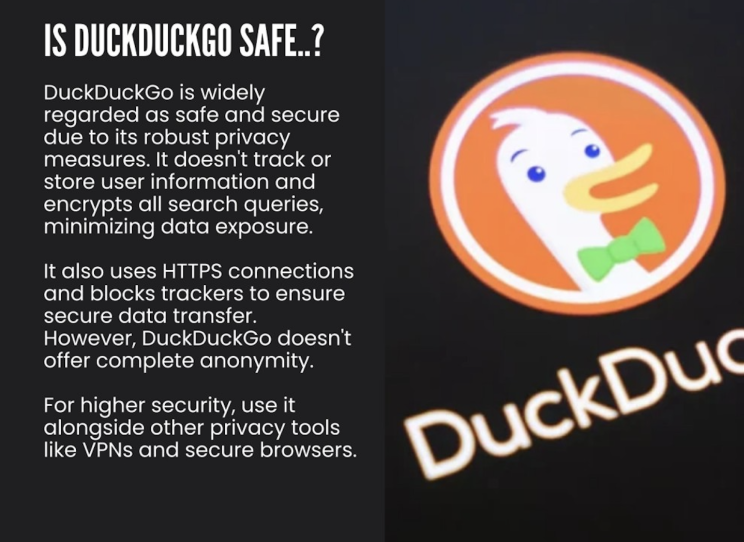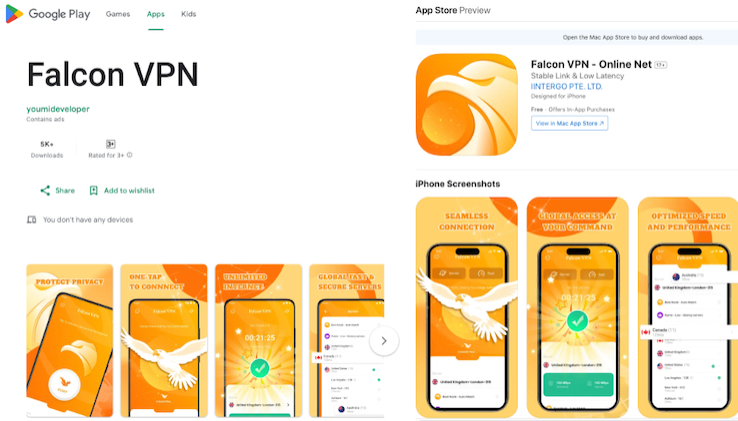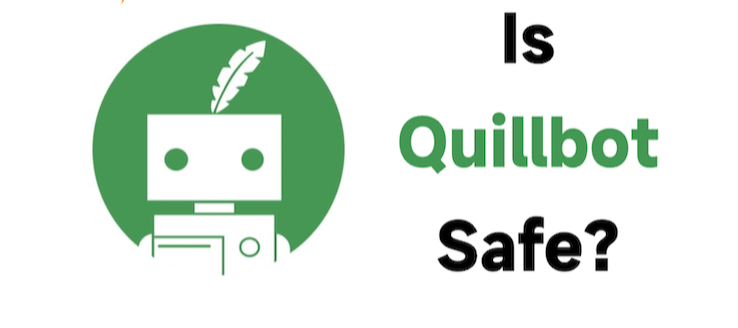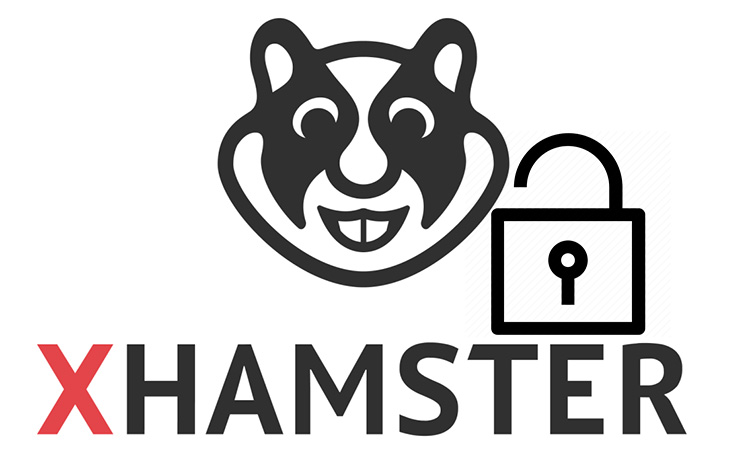For VPN enthusiasts and privacy-conscious individuals, DuckDuckGo often stands out as a reliable search engine prioritizing user privacy. Unlike mainstream search engines, DuckDuckGo has become widely recognized for its robust privacy protocols and user-first transparency in handling data. This article offers a closer examination of the search engine's capabilities, its limitations, and how it stacks up when it comes to safeguarding your online activity.

Is DuckDuckGo a Secure Choice?
Compared to many widely used search engines, DuckDuckGo is often considered a better option for safeguarding user privacy. Its standout appeal is rooted in its no-tracking policy—your search queries aren’t stored, and tracking cookies or user data aren’t sold to third parties. By keeping your search activities free from profiling, DuckDuckGo provides an unbiased and private browsing experience.
However, it's worth noting that while DuckDuckGo significantly reduces data exposure during searches, it does not shield users from all potential online threats. For instance, although the platform filters dangerous websites from its results, it cannot fully eliminate the risk of landing on malicious pages. For comprehensive protection, integrating DuckDuckGo with a VPN or other privacy-focused tools can strengthen your digital security.
If you’re looking for more privacy beyond search, DuckDuckGo also offers a private browser that can block tracking scripts on websites, ads, and other trackers. While this article primarily focuses on the search engine, it’s worth exploring these additional tools for complete privacy.
Why DuckDuckGo Is a Safer Option
1. It Doesn’t Retain Search History
DuckDuckGo ensures that no traces of your search queries are saved or shared. Whenever you enter a query, the search engine acts as a middleman—it retrieves the relevant web pages and delivers them to you without exposing your identity or IP address. With end-to-end encryption in place, your online activities remain inaccessible to third parties.
To refine its platform for user satisfaction, DuckDuckGo collects anonymized data to analyze trends. Even then, the engine employs a clever privacy technique to spoof user location data, keeping it general and untraceable. This guarantees an unbiased search experience devoid of hyper-targeted advertisements.
2. No Selling of Personal Data
DuckDuckGo’s privacy promise is crystal clear—user information is never sold. Whether you're conducting basic searches or exploring advanced topics, you can count on the fact your data isn’t being monetized for profit.
3. Transparency in Data Usage
Transparency is one of DuckDuckGo's core strengths. When using the search engine, small amounts of device data, such as IP address and browser type, are temporarily utilized to ensure functionality. For example, this information helps the platform confirm you're a genuine user and not a bot. DuckDuckGo also provides clear communication about the data required for enabling optional features, ensuring you’re informed and empowered to make choices about your privacy.
4. Limited Cookie Usage
DuckDuckGo minimally employs cookies and ensures they are anonymous. For features like search preferences and local settings, temporary data might be stored in your browser, but it’s all completely private. The platform avoids placing unnecessary identifiers that could compromise your anonymity.
5. Restricted Data Retention
Any personal information you provide to use specific features is only retained as long as necessary to fulfill its function. Once your data is no longer needed, DuckDuckGo promptly deletes it. Their strict policy ensures no logs of your search history or browsing behavior are stored, so even in the event of legal data requests, there isn’t anything to provide.
Enhanced Privacy with Falcon VPN:
To further protect your privacy, consider pairing DuckDuckGo with a reliable VPN like Falcon VPN. A VPN can encrypt your traffic, hide your IP address, and ensure that your Internet Service Provider (ISP) cannot track your online activity. With Falcon VPN, you get an extra layer of security to prevent third-party surveillance, making your browsing experience even more secure.
How to Get Started with Falcon VPN:
Getting started with Falcon VPN is easy! Simply follow these steps:

- Download the VPN Application
Go to Falcon VPN and click the "Download" button for your platform. - Install the VPN
Once the download is complete, open the installation file and follow the on-screen instructions to install the free VPN. - Launch Falcon VPN
After installation, open the application. Choose a server location from the available list. - Connect and Enjoy Secure Browsing
Click the “Connect” button to establish a secure connection and enjoy anonymous, private browsing.
DuckDuckGo's Partnership with Apple
DuckDuckGo’s security standards once caught the attention of Apple, a company known for prioritizing user privacy. Between 2016 and 2019, Apple considered setting DuckDuckGo as the default search engine for private browsing on Safari. However, due to conflicting partnerships with Microsoft, the collaboration didn’t move forward. Despite this, Apple’s interest underscores the privacy promise DuckDuckGo brings to the table.
The Limitations of DuckDuckGo
Though DuckDuckGo enhances privacy over traditional search engines, there are limitations every user should know. For those deeply invested in VPNs and comprehensive security protocols, these considerations highlight where DuckDuckGo may fall short.
1. Your ISP Can Still Monitor You
DuckDuckGo protects against third-party tracking, but it doesn't prevent your Internet Service Provider (ISP) from identifying you. Because internet traffic flows through your device’s IP address, your ISP can still see you’re using DuckDuckGo, even if it cannot view your individual searches. Pairing the search engine with a VPN is the most effective way to ensure your ISP also can’t track your browsing.
2. Limited Protection on External Websites
Once you click through to a website found via DuckDuckGo, the discretion of your privacy lies with the website’s own policies. The search engine cannot prevent tracking or intrusive ads from operating on these external pages. This highlights the importance of using complementary tools, such as tracker-blocking browsers or content filtering add-ons, to extend your protection.
3. Vulnerable to Malware Threats
Like most search engines, DuckDuckGo cannot entirely filter out malicious sites. Users should remain vigilant while browsing, as harmful websites embedded with malware or phishing traps can still appear. For added security, consider pairing DuckDuckGo with antivirus software or a VPN offering malware protection.
4. Reputation Hit with Microsoft Trackers
DuckDuckGo’s partnership with Microsoft led to a controversial decision in 2022 when reports surfaced that certain Microsoft-owned platforms like Bing and LinkedIn were not subject to tracking-block restrictions. However, DuckDuckGo quickly addressed the issue by strengthening its agreement, ensuring no Microsoft tracking occurred. Independent reviews have since confirmed their resolution, restoring confidence in the platform.
Additionally, DuckDuckGo works with Microsoft for ad placement within its search results. This partnership strictly facilitates ad display without compromising user data or creating personalized profiles. For those wary of online advertising, this compromise is still a major step up from data-driven ad targeting.
Enhancing Your Privacy with DuckDuckGo and Additional Tools
While DuckDuckGo offers significant privacy improvements, it’s most effective when combined with complementary tools to create a secure browsing environment. For VPN users, adding DuckDuckGo to your online toolkit ensures a layered approach to privacy—safe searches powered by a secure internet connection.
If you’re serious about enhancing your online privacy, integrating DuckDuckGo with a trusted VPN provider can eliminate ISP tracking, hide your IP address, and protect against malicious websites. Together, these tools offer a robust defense against online threats, making your browsing experience safer and more private.
Is Google or DuckDuckGo Safer?
For those prioritizing online privacy, DuckDuckGo often stands out as a safer search engine compared to Google. Unlike Google, DuckDuckGo doesn’t track your searches or build a profile based on your online activities. This means the results you receive are impartial, unfiltered by tracking algorithms, and free from personalized biases. Additionally, because DuckDuckGo doesn’t log users’ behavior, it’s impossible to know how many individuals actually rely on it, offering an additional layer of anonymity.
Google, on the other hand, relies heavily on tracking user behavior to deliver results tailored to your past searches. While this personalization may seem helpful, it often results in irrelevant advertisements following you across the web based on keywords you’ve searched. If maintaining privacy is a top concern, switching to DuckDuckGo—or similar privacy-focused alternatives—might be the right move.
Enhancing Your Privacy While Using DuckDuckGo
Choosing DuckDuckGo is an excellent first step toward safer browsing, but pairing it with additional tools like a Virtual Private Network (VPN) can take your privacy to a new level. Here’s how combining these tools enhances security:
Using a VPN: A VPN works by encrypting your internet traffic and routing it through a secure server. This effectively hides your IP address and prevents third parties, including your Internet Service Provider (ISP), from monitoring your activity. Even when utilizing DuckDuckGo, a VPN ensures your online presence remains private and inaccessible to potential snoopers.
Adding Anti-Malware Protection: A sophisticated anti-malware tool, such as Falcon VPN’s Threat Protection, bolsters your defenses further. It prevents malicious websites from loading, blocks intrusive web trackers, and eliminates ads before they can disrupt your browsing. For instance, if a harmful link appears in your DuckDuckGo results, the anti-malware tool would notify you instantly and block the threat, keeping your device safe.
Taking these precautionary steps ensures that your browsing remains guarded against potential risks, no matter where your search leads.
Frequently Asked Questions About DuckDuckGo and Privacy Tools
Q:How does DuckDuckGo make money?
A:DuckDuckGo operates using non-invasive advertising practices. It displays ads based on the keywords you search, such as showing ads for “dog food” when you search that term. However, once you leave the DuckDuckGo site, it doesn’t retain any information about your query. Additionally, it earns revenue through affiliate commissions when users purchase products through links provided during searches.
Q:Does DuckDuckGo monitor your behavior?
A:No, DuckDuckGo does not track your online activity. The platform doesn’t store or share your search history and only uses anonymous cookies for minimal functionality.
Q:Can DuckDuckGo completely ensure my privacy online?
A:While DuckDuckGo prevents tracking while you use its platform, it cannot control what happens once you visit other websites. For full online security and privacy, consider pairing DuckDuckGo with a VPN and anti-malware tools for a more secure browsing experience.
Enhancing your online security with DuckDuckGo is a significant step toward privacy. However, don’t stop there—boost your protection and browsing experience with the world’s leading VPN platform today.
The bottom line: Why You Should Consider DuckDuckGo
DuckDuckGo offers a more private browsing experience than mainstream search engines, ensuring your search history isn’t tracked or used to create detailed profiles for advertisers. The platform is transparent about its data practices, assuring users that their information won’t be shared with third parties. However, it’s essential to understand its limitations. While DuckDuckGo safeguards your data while you search, the same level of protection isn’t guaranteed once you click on links and visit external websites. Different sites enforce their own policies, which may not prioritize your privacy.
Additionally, DuckDuckGo doesn’t shield users from malicious links directly embedded in search results. Using supplementary privacy tools, such as a VPN or advanced anti-malware software, can address these gaps and provide a more comprehensive security solution.
Despite these drawbacks, DuckDuckGo remains a reliable search engine for individuals looking to boost their privacy online. If you’re curious about other private browsing solutions, explore our blog for recommendations on the best options available.

Albert Ivan, writer by day, popper by night, is the former senior editor at iTop VPN. He Joined Falcon VPN in 2022 and has since written extensively on the topic of tech, digital privacy & security and internet freedom.



